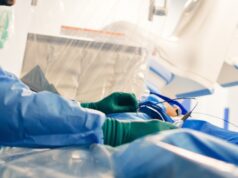Jeff C Huffman (Harvard Medical School, Boston, USA) and others report in Circulation Cardiovascular Quality Outcomes that optimism after acute coronary syndrome is an independent predictor of both increased physical activity and reduced cardiac readmission. However, gratitude does not appear to affect these outcomes.
Huffman et al comment that although positive psychological factors are thought to have a beneficial effect on cardiac prognosis and there is a need to identify factors that improve prognosis after acute coronary syndromes, there has been “minimal study of the prospective impact of positive psychological constructs” in post-acute coronary syndrome patients. They add that no studies have evaluated the effects of gratitude—which is known to increase after acute coronary syndrome—on outcomes after acute coronary syndrome. Therefore, the aim of the GRACE (Gratitude research in acute coronary events) study was to examine the prospective effects of optimism and gratitude, measured two weeks after an acute coronary syndrome event, on subsequent physical activity, levels of inflammation and other prognostic biomarkers, and rates of cardiac readmission the six months following an event.
Among the 164 patients in the study, the mean Life Orientation Test-Revised (LOT-R) score was 17.7—which Huffman et al claim is “higher than general population norms for this age group” (the mean age was 61.5 years)—and the mean depression and anxiety scores were below the respective established cutoffs for clinically significant manifestations of these conditions. After controlling for other factors, the authors found that optimism was associated with an increased number of steps per day (ie. greater physical activity). They comment: “The relationship between optimism and physical activity also held when controlling for depression and anxiety, suggesting a unique effect of positive well-being on post acute coronary syndrome activity.”
Furthermore, Huffman et al report that optimism was associated with reduced rates of non-elective cardiac readmission—independent of age, sex, and medical comorbidity. “Each point in LOT-R was associated with an 8% reduction in the risk of rehospitalisation. These findings also held for all-cause readmissions, although this relationship was largely driven by rates of cardiac readmission,” the authors write. However, there was not a significant relationship between optimism and cardiac biomarkers.
The mean Gratitude Questionnaire-6 score was 36.5, which is consistent with published norms. Unlike optimism, gratitude was not associated with increased physical activity or reduced hospital admission. Huffman et al note that this finding “suggests that not all positive psychological constructs necessarily have the same effect on medical and behavioural outcomes and that it is important to examine the specific psychological constructs within the field of psychological well-being.”
As to why optimism appeared to have a beneficial effect on physical activity and hospital readmission but gratitude did not, the authors suggest that this could be because optimism is about focusing on future expectations whereas gratitude is about focusing on current or past events. They explain: “Believing that one future’s (and future health) were likely to improve [ie. being optimistic] may have played a substantial role in their motivation and confidence to make changes.” Huffman et al also note that optimism “in many cases” can be a more action-based thought process, which “may promote beneficial changes in health behaviour. Thoughts or expressions of gratitude may be less directly linked to making behaviour changes.”
Concluding, the authors say further research is needed to determine if optimism can be promoted in patients with acute coronary syndrome and whether such an intervention would lead to improved outcomes.
Huffman told Cardiovascular News: “I think often patients take their cue from their cardiologist in terms of how hopeful they are allowed to feel. If a cardiologist can tell them ‘this heart attack is not the end of your life, but it is a beginning of a new life—in which you are taking better care of yourself and making your health a priority,’ patients can really thrive. A talk like this sends two messages: firstly, that there is a lot of reason to feel hopeful about their health; and secondly, they have an active role in their recovery—that by staying motivated, committed, and consistent, they can make real changes in their health and prognosis.”













